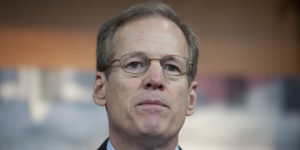I published a blog post this week in which I declared that the Amarillo Independent School District board of trustees needs to get a serious electoral wake-up call from voters this year. The board has delivered shabby treatment to a young high school girls volleyball coach, meaning that it didn’t measure up to its public office.
Then came a question from the reader of the blog. He wondered how many times during my years as an opinion writer and editor I endorsed those who challenged incumbent officeholders.
That was what I described to him as a “tremendous question.”
I edited editorial pages in Texas for nearly 30 years: 11 at the Beaumont Enterprise and nearly 18 years at the Amarillo Globe-News.
I had the pleasure of interviewing likely hundreds of political candidates during all those years.
I told the reader of my blog that during that time our newspapers recommended the re-election of incumbents far more frequently than we recommended the election of newcomers.
Why stay the course? Well, I suppose we placed a huge premium on experience. Absent overt malfeasance or incompetence on the part of incumbents, we usually gave them the benefit of the doubt. If the communities they served were doing well economically, they quite often deserved some measure of credit for that performance.
Sure, we would go with challengers on occasion. In Beaumont, the Enterprise once recommended the election of former Beaumont Mayor Maury Meyers, a Republican, over incumbent U.S. Rep. Jack Brooks, the irascible Democrat who chaired the House Judiciary Committee; Brooks won re-election anyway, but held a bit of a grudge against yours truly for authoring the editorial. Many years later, the Amarillo Globe-News recommended the election of Patti Lou Dawkins over incumbent Randall County Judge Ted Wood in the county’s Republican primary; Wood defeated Dawkins.
Perhaps the most controversial non-incumbent endorsement we made in Amarillo occurred in 2010 when we recommended former Houston Mayor Bill White over Texas Gov. Rick Perry. White, the Democratic nominee, got thumped by the Republican governor. The reaction from our readers was ferocious. But . . . we called it the way we saw it.
But over the span of time, we usually went with the incumbent mostly on the basis of the experience they brought to the office.
All of this, I suppose, is what got my blog reader’s attention when I recommended that the AISD board of trustees incumbents get shown the door when Election Day rolls around later this year.
I just try to call ’em the way I see ’em.




